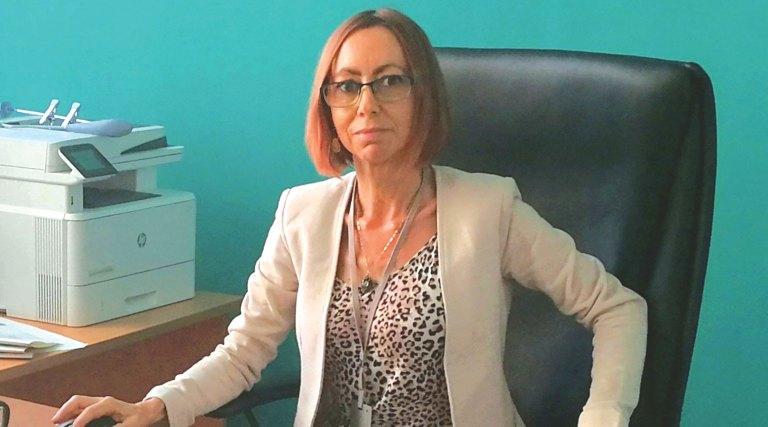
Africa-Press – Mauritius. “When civil society or the media refuse or fail to self-regulate, government authorities are compelled to do so .
“The best protection for a journalist is his professional ethics .
. as long as he has one”
Freedom of expression is fundamental in any democracy. As a result, when laws are proposed to parliament to regulate the difficult work of journalists, protests and demands erupt from all quarters.
Given the call of the demonstrators in Mauritius against the proposed amendment of the Independent Broadcasting Authority (IBA) Act, voted on last Tuesday, we invited Dr Catherine Boudet, specialist in political science, and director of communication and marketing of the ‘ICTA to enlighten us on this matter.
Pandemic obliges, this interview took place only by e-mail. Mauritius Times: In other circumstances, you would most likely have been seen taking a firm stand against the proposed amendment to the Independent Broadcasting Authority (IBA) Act, passed last Tuesday, which sparked an uproar from certain movements of civil society and the political opposition.
Do your core beliefs remain the same despite your appointment as ICTA Marketing and Communications Manager? Catherine Boudet: Would I have taken a stand against the draft amendment before, probably not, no.
Those who know me know that I don’t howl with wolves and I don’t bleat with sheep. In the debates over the IBA amendments, there is a discourse that has gone viral with a lot of victimizing, demagogic and even inaccurate arguments.
So on that basis I don’t think I would have barked with the pack. My methodology, being of Sciences Po training, has always been to take the opposite view of the dominant discourses in order to promote constructive reflection.
Moreover, you will notice that, in my analyzes, I have always given the pros and cons; I have never put together a prosecution case, unlike in the press and on social media these days.
And since you speak of my convictions, they remain invariable: I always take the point of view of the general interest. I have worked as a scientist, journalist and political analyst for civil society too.
Today, I am honored to work for a Mauritius institution such as the Information Technology Regulatory Authority. This is a logical continuation in my journey.
However, you say “appointment”. However, this was a recruitment. Recruitment interviews were held in front of a panel of professionals from different sectors, including private sector communications professionals.
And I can tell you that the exchanges with the members of this panel were of a very high level. Now what is changing is that when I join the ICTA, I have a duty of secrecy which is ethically binding on me.
Moreover, I have officially declared that I will no longer be able to be called upon for analyzes outside my new official remit. And, if I have any criticisms, I will make them internally without having to do so through the press. But above all, I am committed to representing, and if necessary defending, my institution and my team.
* No one disputes the need to empower Internet users and the various media, but following in the wake of previous government initiatives aimed at amending the law governing ICTA or that relating to ‘Cybersecurity & Cybercrime’, there is a strong suspicion that the government’s approach to amend the IBA Act is part of a political logic.
This aims to neutralize the strike force of certain private radio stations, and to favor government communication, if not propaganda, relayed by the MBC.
How do you react to this?
It is no longer my role to comment on the aspect of political or government strategies. And then, I don’t think I’m needed anymore for that.
There are enough observers to do this. On the other hand, from the point of view of governance, it is good to highlight certain legal points which have remained hidden in the controversy.
Whether it is the Cybersecurity and Cybercrime Act passed on November 19, or the amendments to the IBA Act passed this week, they clearly demonstrate a new legislative dynamism. These are texts that establish new governance structures.
For example, the Cybersecurity and Cybercrime Act, in addition to defining new offenses to respond to the development of cybercrime, also aims to put in place procedures and protective structures.
As for the IBA Act amendments, many wanted to see them as repressive. However, from a regulator’s point of view, the introduction of an administrative penalty, instead of criminal or civil penalties, is rather a step in the right direction.
In addition, the penalties are set according to administrative criteria in section 29A: when the licensee contravenes the provisions of the law or other laws of the country, if he has committed a financial crime, if he no longer meets the criteria required, or if it is not a fit and proper person of the Anglo-Saxon legal concept based on qualifications, integrity and financial standing.
In addition, the administrative penalty is accompanied by a dialogue between the authorities and the radio stations: the licensee has a right of reply in the event of a sanction [section 29 (4) c], he can appeal against the decision of the ‘Authority, after which the latter may change its decision if the licensee’s arguments are convincing.
Finally, the decision of the Authority (IBA) is transparent as it will be published in the Government’s Gazette. Clearly, there is therefore accountability on both sides.
* Top FM appears to have become the black sheep or the black sheep of the current government.
The opposition maintains that the Government’s main objective would be to target this private radio station, whose operating license expires in the coming weeks.
Why tighten the screw when existing laws should be sufficient to sanction any deviation? On the one hand, it should be noted that Top FM is not an ICTA licensee. The ICTA grants it frequencies as a licensee of the IBA but is not its regulator.
On the other hand, it is not the role of the ICTA as Regulator to debate the content or merits of laws or amendments, and therefore by extension, it is not mine either.
On the other hand, there is one observation to be made concerning the show of Monday, November 28, organized jointly by Top FM and Radio Plus. It was Mr.
Dick Ng Sui Wa who intervened as a member of the board of directors of the IBA and chairperson of the ICTA. However, this debate, which focused on the amendments to the IBA Act, was held in defiance of journalistic ethics.
The distribution of speaking time was very unequal between the speakers, treated in an equally unequal manner by journalists who were openly involved.
So a politician monopolized speaking time. He spoke freely 36 minutes in total for a debate lasting 3 hours and 5 minutes. That’s as much as the ICTA chairman (15 minutes) and the Attorney General (23 minutes) combined, plus they were constantly interrupted.
In other words, the two speakers who came to explain the amendment to the law were only given 20% of the airtime. However, precisely, the amendment to the IBA Act introduces the obligation for radio stations to adopt a code of ethics.
Should we wait for an amendment for that? We know very well that when civil society or the media refuse or fail to self-regulate, government authorities are obliged to do so to avoid abuses.
* The Prime Minister is right to say, during his ‘summing up’ of the debates on the IBA (Amendment) Bill, that the amendments will indeed allow the IBA to “carry out its mandate more effectively” with regard to new provisions including the introduction of administrative penalties, the creation of an Independent Broadcasting Panel Review with three members appointed by the PM, the shortening of the term of licenses to one year, the inclusion of past penalties for the renewal of ‘a permit, the disclosure of journalistic sources… But there is a whole arsenal there to prevent any radiophonic protest, isn’t there?
It is unfortunate that these civil society actors and their political allies rely on dirty tricks, distortions and cheating to defend their causes. Who wants to fight honorable combat, uses honorable weapons.
I mentioned earlier the very unequal set of the joint broadcast of the two radio stations Top FM and Radio Plus on Monday evening. A distorted argument, repeated over and over, concerns the amendment to the IBA Act, the alleged breach of secrecy by journalistic sources.
Nowhere in the text, explicitly or implicitly, is there any mention of disclosure of journalistic sources. The introduction of an administrative penalty concerns the owners of the radio station, not the journalists.
Not to mention that, for a radio journalist, his sources are not that secret, since he has to invite them on a set . . . In addition, a journalist, an activist, must be able to speak in an ethical and professional manner.
The fact that the amendments to the IBA Act introduce the obligation for radio stations to adopt a code of ethics is already an important safeguard against journalistic abuses and therefore the risk of suspension or penalties.
Because the first and the best protection of a journalist is his professional ethics . . . As long as he has one. Among the demagogic arguments used, we put forward the idea that this bill would muzzle citizens.
It’s quite the opposite. Until now, the auditor has had virtually no recourse when his rights are violated or when he is the victim of ethical abuse by the media, other than lengthy and costly legal proceedings. The amendment to the IBA Act increases citizens’ power of recourse against radio stations if they feel aggrieved by certain comments broadcast.
* In the end, is the Government not abusing its parliamentary majority to amend the country’s laws, in particular those concerning the audiovisual industry, social media platforms, and this with a view to sanctioning any dispute and thus dominate the political debate in the country?
It is no longer for me to comment on government strategies or positions. It is important to make the point of view of the Regulatory Authority understood. The ICTA has no legislative or executive power. It is not his role to make laws or debate them.
The ICTA is a regulatory authority, which means that it is there not to play the game of controversy, but to ensure the proper functioning of the ICT sector and to enforce a fair basis and, if necessary, to clarify the terms of the debate.
And that is a very concrete role, at the heart of the needs of Mauritian citizens. The ICTA does a lot of things for citizens, of which we are not necessarily aware, for example, at the level of customer service or customer service.
There is therefore a distortion, even an injustice, in wanting to present the ICTA as a whipping father who would be there to bully and whip citizens, the media and civil society.
Make no mistake, this is a discourse of disparagement carefully fostered by those who, in fact, may not have an interest in sound regulation. ICTA has the prerogative of regulation and civil society has the prerogative of critical debate.
Everyone has their role, everyone their field of action, everyone their responsibility. It is important that citizens understand this distinction. We also need to understand the role and importance of regulatory institutions in a country, and why regulation is essential in the interests of both civil society and the economic affairs sector. We will undoubtedly have to work on doing this pedagogy to clean up the bases of our national dialogue on social networks.
For More News And Analysis About Mauritius Follow Africa-Press






